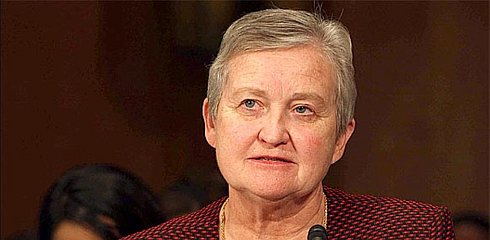
U.S.Ambassador to India Nancy Powell today underlined the need to deal with the threat of infectious diseases that can undermine the social, economic and political functions of a society.
“Mitigation of biological risks posed by infectious diseases requires development of capacity and coordination across multiple sectors, and, indeed across national boundaries. To address biological risks, we must consider the full spectrum of biological threats, from natural ones to intentional ones”,she said while addressing the National Conference on Pathogens and Bio-Risk Management at India Habitat Center in New Delhi today.
She further said as follows:
” The 21st century has been no stranger to these threats – anthrax in 2001, followed by SARS in 2003, H5N1 avian influenza in 2005, H1N1 in 2009, and now, the current H7N9 influenza situation that is unfolding.
With anthrax, perspectives on biological risk changed. The 2001 anthrax attacks in the United States galvanized nations to embrace the need for stronger biosecurity practices. Biological security threats not only endanger the lives of humans but can also have significant economic and political ramifications. They are costly threats to respond to, but we cannot ignore them. Appropriate responses require a well-coordinated interagency approach, which we demonstrated in response to the recent ricin-laden letters that were sent to President Obama. In the United States, the FBI, CDC, and other entities of the U.S. government have learned to coordinate closely in response to biological events.
Appropriate response requires technical capacity and coordination across well-prepared sectors. The public increasingly accepts and demands the need to address biological risks because our citizens are now aware of their own vulnerability to the natural spread of infectious diseases, such as SARS and avian influenza. Not since the emergence of HIV and AIDS in the 1980s has the global community come to feel personally vulnerable to the threats posed by infectious diseases such as these.
In order to address today’s biological risk threats, it takes intersectoral cooperation, coordination and partnerships. It is necessary to stimulate scientific and technological innovations, raise the visibility of public health security, and promote the training of the next generation of public health leaders. This workshop brings together representatives from a number of U.S. and Indian agencies, all stakeholders in protecting health and preventing spread of disease. It provides an opportunity for exchange, discussion and engagement on this important topic.
Capitalizing on a long history of Indo-U.S. cooperation in health and science, this workshop will sow the seeds to strengthen existing partnerships, develop new partnerships, and lead to a greater degree of cooperation in our mutual efforts to prevent and respond to the global challenge of emerging and re-emerging health threats.”